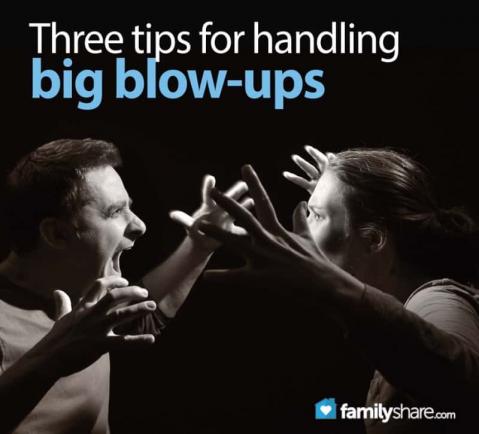
Few things are more painful than highly emotional conflicts between romantic partners. There are many different psychological dynamics at play in romantic relationships, so it isn't uncommon for relatively insignificant events to trigger major emotional episodes.
When the ego is angry, hurt or unsatisfied, it often yearns to blame another. The ego would rather unjustly dump responsibility onto someone else than accept responsibility and work at a solution. In addition, the ego feels gratified when it blames someone else and then punishes them.
When one romantic partner becomes emotional and begins to attack the other, it's important for the victim to take three specific steps to defuse the situation in a healthy manner.
1. Show empathy and compassion
The two foremost principles of all human relationships are love and justice, but love is the greater of the two. The first step in handling an emotional partner is to express this love through empathy and compassion.
When a person is attacked by her romantic partner, it's easy to allow ego-defense-mechanisms to counter-attack. This can manifest as defensiveness, anger or avoidance. It's important for the victim to be aware of these defense mechanisms and not be taken over by them.
Instead, she should do her best to show empathy, concern and compassion for her partner. If the victim has played a part in the angry partner's emotional episode, an apology and commitment to do better can help to calm him down.
Sometimes an emotional partner just needs some love and attention in order to calm down. Other times, he will seek to use his emotional episode as a weapon of punishment, or a means of exerting control over his partner.
2. Allow a grace period
To be human is to have weaknesses that sometimes lead a person to hurt others, even loved ones. Sometimes a partner is so overcome by emotion that the love for her partner has become completely obscured. This may lead her to use his emotional episodes as weapons of abuse or control.
After the victim has exerted effort to show empathy and compassion, he should end the conversation until his partner has taken responsibility for her emotions and can communicate with respect. It is unlikely that any constructive discussions will take place when emotions are so high.
It is immoral for a person to remain in a situation where they are likely to be verbally, physically or psychologically abused.
The victim should offer his partner a grace period to calm down and think things over. One way to do this is to simply leave the house or hang up the phone. When doing so, he should offer a brief explanation as to why he is ending the conversation. He can explain to the emotional partner that he is concerned about her and loves her, but will not be subjected to hostile treatment. He can end the conversation with an invitation to the emotional partner to call back or come talk once the emotional partner has calmed down and can speak politely and constructively.
3. Respond justly
People learn from their behavior by experiencing the consequences of their actions. If a partner is abusive, hostile or highly emotional, his partner should respond in some way. This is why justice is such an important relationship principle. It often takes painful consequences before an emotional or abusive partner will exert the effort required to stop mistreating his partner. If a person can use bullying or manipulating as ways to evade responsibility for the hurtful behavior, he will often choose this path rather than the more difficult path of self-control.
Responding with similar behavior is ineffective (and immoral). This is because the emotional partner often feels justified in his hurtful behavior in knowing that the victim responded just as hurtfully.
It is never moral to be verbally, physically or psychologically abusive -�even in self-defense. The most effective and moral path is for the victim to create some distance from the emotional partner. This might involve moving out, taking a break from the relationship or ending the relationship entirely.
To tolerate a partner who refuses to take responsibility for his highly emotional or hurtful behavior is to enable that behavior. Sometimes an expression of love is enough to dispel the drama and bring peace back into the relationship. Other times it takes harsh consequences for the emotional or abusive partner to become aware of his behavior and take responsibility for it. Consequences should always be given with love and justice.

